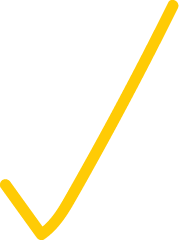Tobias Ørskov Madsen from Contribe
April 14, 2023
BY Ida Marie Wøhlk Vilbæk

Meet Tobias:
-
Founder of Contribe, a startup helping companies benefit from donating to NGOs
-
Completed his Master’s degree in law from Aarhus University in January 2023
-
Previously founded the NGO A Better Ocean
-
Co-founded Contribe with Christoffer Winther Bouet, former management consultant in EY, and Lasse Viggo Hensrik, software developer with a background in computer science.
How did the idea of becoming an entrepreneur arise?
Companies willing to donate to non-governmental organizations often hold back. A lack of transparency, control and impact is to blame. Having previously founded an NGO called A Better Ocean, I knew first-hand of these obstacles. It made me want to bridge the gap between companies and NGOs and remove some of the barriers on sustainable actions and partnerships.
That is why Contribe offers a digital platform which simplifies the process of donating by:
- Matching companies with vetted NGOs relevant to their line of business
- Providing companies with access to data on the sustainability impact of their donations
- Helping companies leverage impact data in branding and marketing
By doing so, the platform helps NGOs raise funds by showcasing their profile and results to potential commercial partners with almost no administrative costs.
How did you get started with your entrepreneurial journey?
I went searching for a software developer and someone with knowledge of commercial strategies. This led me to Lasse and Christoffer. In August 2022, we co-founded Contribe and started looking for funding. Mostly angel investors and venture capital seeing as competitors are approaching our market and we need to be able to scale our business rapidly.
During the next months, we talked to about 60 venture foundations about pre-seed funding and ended up with two purpose-driven investors: Rockstart and Human Act Development.
What has been the biggest challenge in the process?
Spending so much time on fundraising. Christoffer and I have done nothing else for months. While fundraising, you get close to nowhere with your actual product, sales strategy, organization or marketing efforts. By the end of it, we were impatient to get started and a bit pent-up.
What does a typical workweek look like in relation to combining your startup with your studies?
I probably attended a total of three classes during my Master’s degree program. Instead, I focused on independent studies. For exam preparation, I used to read 14 hours a day for a week and then take a week to practice my material. Tough, but efficient. I also worked part-time at a law firm.
I was very active on my Bachelor’s degree program, both in terms of classes and social activities. But when I started my Master’s degree, I knew that I did not want to pursue a traditional career in law, for instance at a law firm. People have very similar backgrounds and goals in law firms – and it takes a long time to climb the corporate ladder.
I chose a different way of studying and went into entrepreneurship instead. I wish to work with a more diverse set of co-workers and influence my own job. A startup is great in this regard
How do you use your academic skills as an entrepreneur?
Law is involved in almost everything we do in Contribe – as it is in most startups for that matter. From restructuring our company and adding two co-founders and most recently two investors, to handling contracts, GDPR and EU directives on sustainability due diligence and corporate social responsibility. My degree means we do not have to pay a legal adviser.
Where is your startup today, and what are your dreams for the future?
On 1 April 2023, we launched an early version of our product. We have spent March onboarding our first three customers, who will provide us with feedback for the next few months.
Our dream is to develop an open marketplace for donations where NGOs can present themselves, including data on their results. Here, companies would be able to browse NGOs themselves or use our AI-assistant to find the right partner, then use the platform to enter a collaboration. All processes should be automated, and our algorithms would allow us to provide full transparency on how money are channeled into different projects. We could bring down the proportion of donations that cover administration, since NGOs would seek out funding in a much less manual way on this platform.
In the end, our technology would create a greater money to impact ratio and allow NGOs to accomplish more with donations. This would make it even more attractive for companies to donate, since the impact would be higher and easier to document.
By making donations more commercially valuable to companies, we aspire to increase how much money is donated towards helping our planet.
Your best advice for other students who are considering becoming entrepreneurs?
Try it out, especially as part of The Kitchen. You will get help for all the important steps during your early days as an entrepreneur and have a business developer to coach you. I joined the dual-career program, which helped me postpone courses on my degree program and gave me more options. And the social environment in The Kitchen is great, I was part of Ignite when I first became a founder.
You generally have excellent opportunities for entrepreneurship while you are a student, including the option to plan your own time, a financial safety net and few expenses. While on SU, your startup does not have to pay a proper salary from day one.
My other advice would be to find a co-founder. It is easier and much more fun to share decisions, raise funds and build a business with people who are as invested as you and who contribute with a different skillset. It is also easier to convince investors when you are more than one founder, ideally a small, interdisciplinary team.




